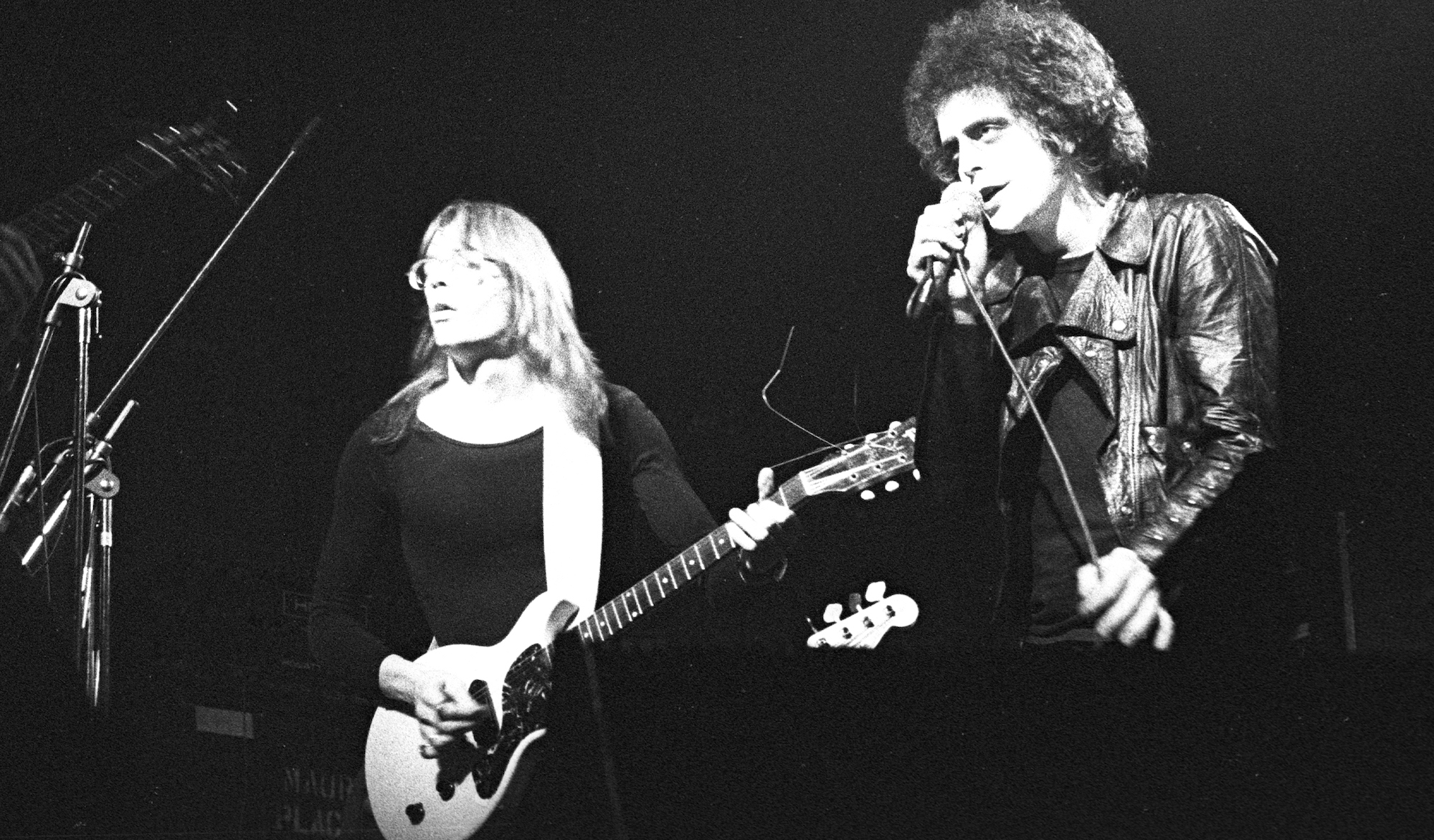“I still remember writing the intro to Sweet Jane sitting on a couch in my living room”: How a session guitar legend resurrected Lou Reed’s career with hard-rock lead heroics – and help from Blood, Sweat & Tears’ Steve Katz
He was the ghost player on Aerosmith's Train Kept a Rollin’, and defined many a classic Alice Cooper album with his stinging, melodic leads, but Lou Reed's ferocious Rock ’n’ Roll Animal live album may just be Steve Hunter’s finest hour – and contains one of the most underrated twin-guitar solos of the ’70s

In 1973, Lou Reed and Steve Hunter certainly must have seemed like an odd musical match.
Though he was indisputably one of glam- and art-rock's godfathers, Reed minced no words about his disdain for many of the artists who followed in his wake. One of these was Alice Cooper, whom (in reference to the original Alice Cooper band) Reed once cited as “the worst, most disgusting aspect of rock music.”
Dismissive as he was, Reed evidently found something in the band's sound to latch on to, given that he hired Cooper producer Bob Ezrin to man the boards for what would become his ill-fated (though it's now regarded by many to be a masterpiece) 1973 concept album, Berlin.
Ezrin, in turn, pulled together a crack band for the Berlin sessions, a group that included two electric guitar greats with whom he'd worked on a number of Cooper sessions: Steve Hunter and Dick Wagner. Though Berlin was met by hostile reviews and confusion from record buyers expecting more songs in the vein of Reed's surprise 1972 hit, Walk on the Wild Side, Reed retained the Hunter/Wagner guitar tandem for some of his most prominent post-Berlin '73 live shows.
Though it wouldn't be a long-lived relationship (Reed was quite fond of pulling full artistic 180s from album to album – from the beginning of his career until its end), the Reed/Wagner/Hunter tandem was captured in glorious form on Rock 'n' Roll Animal, a live LP recorded in December 1973.
At the behest of Steve Katz, the one-time Blood Sweat & Tears guitarist who would go on to produce the live LP, Reed ditched his shaky and ragged backing group, the Tots, in favor of another supergroup of session players, led by Hunter and Wagner.
Both armed with Gibson Les Pauls (Hunter played a TV Special), Hunter and Wagner set about reinventing the catalog of the defunct art-rock combo that had made Reed a legend, the Velvet Underground.
All the latest guitar news, interviews, lessons, reviews, deals and more, direct to your inbox!
In Hunter and Wagner's hands, Reed's twitchy, nihilistic, and street-smart rockers were transformed into soaring, guitar-driven mini-operas – imbued with the same drama and evocative melodies they'd brought – and would continue to bring in the coming years – to Cooper's songs.
“In my opinion, it was their [Hunter and Wagner's] contribution, even more than Lou, that helped Rock ’n’ Roll Animal become a classic album,” Katz once recalled.
Nowhere is the duo's brilliance more evident than the album's opening salvo – Intro/Sweet Jane. Prefacing a tough version of the Velvet Underground classic – and leading off what would become Reed's first Gold-selling album – Intro is nothing less than one of the most underrated two-guitar solos of the '70s, if not of all time.
Hunter and Wagner lead Reed onto the stage with the pomp and circumstance of a marching band, weaving their arcing phrases around one another into a glorious, spellbinding tapestry.
We turned up the volume so that it sounded as if the Pope just entered Vatican Square
Steve Katz
“I still remember writing the intro to Sweet Jane while sitting on a couch in my living room,” Hunter recalled to Guitar World in an August 2023 interview. “It was just this thing that I put together with an old acoustic guitar, and later, I was out on tour with the Chambers Brothers – I'd play that same intro with them. It had no name, but after I got together with Lou, he liked it, and we turned it into the intro for what became Sweet Jane.”
As the intro draws to its conclusion, Reed emerges to an ovation as majestic as the intro he was given. Between the Les Paul heroics and the rapturous response of the audience to Reed and his band, nothing about Intro/Sweet Jane was an accident.
“Like laugh tracks in sitcoms, you could play with the volume,” Katz wrote. “Loud laughter can make a bad joke sound funny, loud applause can make a mediocre performance sound positively virtuosic, so halfway through Sweet Jane, when the band is still playing the overture, and Lou begins his entry onstage, we beefed up the applause.
“We turned up the volume so that it sounded as if the Pope just entered Vatican Square. It was beautiful, and that’s the way it stands to this day.”
Jackson is an Associate Editor at GuitarWorld.com. He’s been writing and editing stories about new gear, technique and guitar-driven music both old and new since 2014, and has also written extensively on the same topics for Guitar Player. Elsewhere, his album reviews and essays have appeared in Louder and Unrecorded. Though open to music of all kinds, his greatest love has always been indie, and everything that falls under its massive umbrella. To that end, you can find him on Twitter crowing about whatever great new guitar band you need to drop everything to hear right now.

